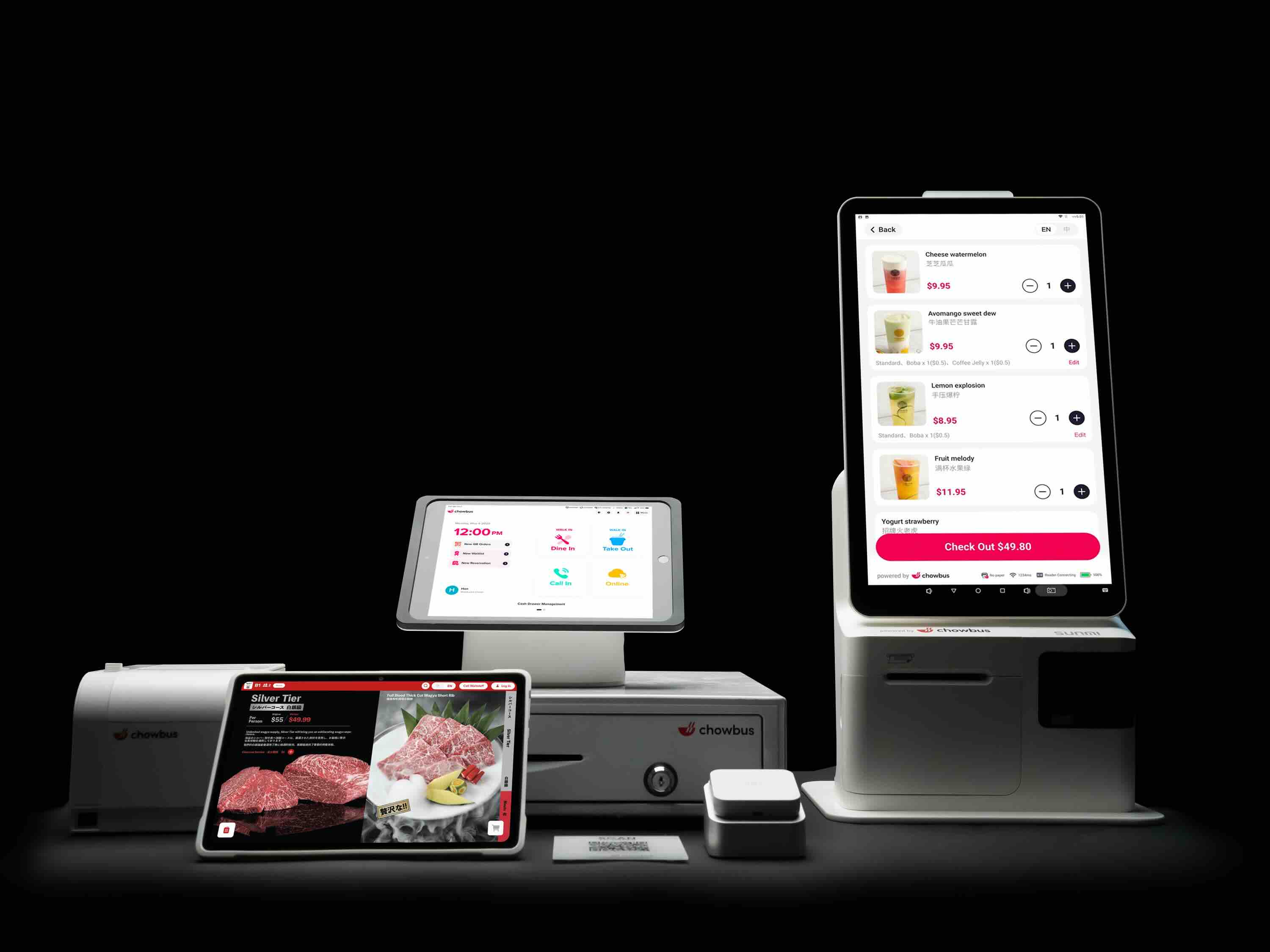What is a Barista? Skills, Salary, and Value to Your Café

Are you tired of struggling to maintain consistency in your café's service quality? Do you find it challenging to ensure that your customers leave satisfied every time? If so, you're not alone. Many restaurant owners and managers grapple with these issues daily. One crucial aspect that can significantly impact your café's performance and customer satisfaction is the role of your barista.
In this blog post, we'll delve into the world of baristas, exploring what a barista is, what they do, how much they make, and how you can ensure you have the best baristas in your team.

What is a Barista?
A barista is a professional who specializes in preparing and serving coffee-based drinks and other beverages, typically in cafés, coffee shops, or restaurants. They are well-versed in various coffee beans, brewing methods, and techniques to craft a wide array of espresso-based drinks, including lattes, cappuccinos, and macchiatos.
Beyond just making coffee, baristas are responsible for operating and maintaining espresso machines, steaming milk, and taking customer orders. They may even showcase their skill in latte art by creating intricate designs in the milk foam of a cappuccino or latte. Their in-depth knowledge encompasses different blends, roasting techniques, and brewing methods, positioning them as experts in the coffee industry.
Barista Etymology
The term "barista" originates from Italian, signifying a bartender of any gender who serves both alcoholic and non-alcoholic drinks, including espresso and other hot beverages, as well as snacks. The word made its way into English usage in the late 20th century, retaining its Italian root, which interestingly borrowed the term "bar" from English.
In Italian, "baristi" refers to male bartenders and "bariste" to female ones, while in English, "baristas" can refer to professionals of any gender in this role. The "-ista" suffix in Italian is akin to the English "-ist," indicating a person skilled in a specific field. Thus, a barista is essentially a skilled professional working behind a bar, specifically in the context of coffee shops and cafes.
What Does a Barista Do?
On a day-to-day basis, a barista wears many hats. From early-morning rushes to late-night shifts, their responsibilities are diverse and demanding. A typical day for a barista may include:
Welcoming guests with a smile and taking their orders with expertise.
Skillfully operating espresso machines and other coffee brewing apparatus to prepare orders to perfection.
Precisely grinding coffee beans for each order, ensuring freshness and flavor.
Expertly frothing milk for creamy lattes and crafting delicate latte art.
Upholding the highest cleanliness and sanitation standards within the coffee area.
Efficiently restock supplies and manage inventory to keep the coffee flowing.
Handling cash transactions and smoothly operating cash registers.
Delivering exceptional customer service, making every visitor feel valued.
Collaborating seamlessly with team members for efficient café operations.
Adapting to menu expansions, such as preparing bobas, smoothies, or even serving ice cream, depending on the establishment's offerings.
Through these tasks, baristas not only make and serve coffee but also contribute significantly to the overall customer experience and operational efficiency of a café.
Qualities of a Good Barista
Certain qualities are essential for excelling in the role of a barista. Beyond technical skills, a good barista possesses:
Attention to detail: From the coffee beans' grind to the foam's texture, every aspect of coffee preparation requires precision and care.
Customer service orientation: Baristas must be friendly, approachable, and attentive to customers' needs, ensuring a positive experience with each visit.
Adaptability: In a fast-paced environment, things can change quickly. A good barista can remain calm under pressure and adapt to changing circumstances.
Passion for coffee: The best baristas are genuinely passionate about coffee and take pride in their craft, continually seeking to improve their skills and knowledge.
Team player mentality: Collaboration is key in a restaurant setting. A good barista works well with others, communicating effectively and supporting their colleagues to deliver outstanding service.
Skills for Baristas
The role of a barista is as rich and complex as the coffee they serve. It requires a unique blend of technical prowess and soft skills that, when combined, create a memorable café experience. Let's break these down further.
Technical Coffee-making Skills
1. Knowledge of Coffee
A barista's journey begins with a deep understanding of coffee beans, including their origins, roasting levels, and flavors. This knowledge isn't just for show—it enables baristas to recommend the perfect brew that meets each customer's unique taste preferences.
2. Espresso Machine Proficiency
Mastering the espresso machine is a fundamental skill for any barista. This includes everything from grinding the beans to the right fineness, to dosing and tamping correctly, and finally, extracting a flawless shot of espresso that forms the base of many coffee drinks.
3. Milk Steaming and Latte Art
Creating the perfect foam for various espresso-based beverages is an art in itself. But it doesn't stop there—latte art adds a visual touch to the drink, enhancing the overall experience for the customer and showcasing the barista's skill.
4. Brewing Techniques
A skilled barista is versatile and capable of employing various brewing methods to cater to the diverse preferences of their customers. Whether it's a pour-over, French press, or Aeropress, mastering these techniques is essential.
5. Cleaning and Maintenance
The importance of cleanliness and maintenance cannot be overstated. Regularly cleaning and maintaining coffee equipment ensures the machines' longevity and the consistent quality of the coffee served.
Soft Skills
1. Customer Service
A barista's role extends beyond making coffee—they're the face of the café, often the first point of contact for customers. Providing excellent customer service is paramount, creating a welcoming atmosphere that encourages customers to return.
2. Communication
Effective communication is key in a coffee shop setting, both with customers and fellow team members. From explaining the subtleties of different coffee blends to taking orders accurately, clear communication ensures a smooth operation.
3. Time Management
The ability to manage time effectively is crucial, especially during busy periods. A barista must prioritize tasks efficiently to maintain quality service without significant wait times.
4. Attention to Detail
The little things matter in the world of coffee. Precise measurements, temperature control, and presentation significantly affect the final product and, by extension, customer satisfaction.
5. Adaptability and Problem-Solving
Challenges are part of the job, and a barista's ability to adapt and solve problems on the fly—whether it's a broken machine or an unexpected rush—can make all the difference.
6. Teamwork
A cohesive team ensures the café runs smoothly. Effective teamwork is essential for success, from coordinating with the kitchen to managing inventory.
7. Passion and Enthusiasm
Lastly, the most important qualities are a genuine love for coffee and a willingness to learn. They not only enhance the barista's skill set but also contribute to the café's vibrant atmosphere.
Barista Training & Expertise
Becoming a proficient barista involves a comprehensive training process encompassing the art and science of coffee preparation. The journey to expertise in this field not only enhances the individual's skill set but also significantly contributes to the quality of the coffee shop experience for customers.
Here's an outline of the typical training process and the expertise required:
1. Understanding Coffee
Origins and Types: A barista's education starts with the basics - understanding the different types of coffee beans, such as Arabica and Robusta, and how their origins and the climate they grow in influence their flavor profiles. This knowledge is foundational in selecting the right bean for the desired cup.
Roasting and Grinding: Next, they learn about the roasting process, where beans are transformed to reveal a spectrum of flavors depending on the roast level - light, medium, or dark. The grind size is another critical factor, with each brewing method requiring a specific size to extract the perfect flavor.
2. Mastering Equipment and Brewing Techniques
Espresso Machine Operation: Technical proficiency with espresso machines is essential. Baristas must master the art of pulling a balanced shot, which includes understanding the right grind size, tamp pressure, and machine maintenance.
Alternative Brewing Methods: Beyond espresso, baristas are trained in various brewing methods like pour-over, French press, and Aeropress. Each technique requires a unique approach to control the variables that affect taste, allowing for a diverse coffee menu.
3. Milk Steaming and Latte Art
Milk Texturing: Creating the perfect texture for milk-based drinks is a skill on its own. Baristas strive to achieve silky, microfoamed milk that blends seamlessly with espresso.
Latte Art: This is where creativity meets skill. Baristas learn to pour beautifully designed latte art, adding a visual delight to the sensory pleasure of coffee.
4. Customer Service Excellence
Communication Skills: Engaging with customers, understanding their preferences, and making recommendations are part of delivering an exceptional service experience.
Efficiency and Cleanliness: Keeping the coffee shop clean and serving orders efficiently, especially during busy periods, reflects professionalism and respect for the customer's time.
5. Continuous Education and Certification
The coffee industry is constantly evolving, and staying updated with the latest trends, techniques, and technologies is crucial. Baristas are encouraged to participate in workshops, courses, and competitions, and to pursue certifications from recognized organizations, such as the Specialty Coffee Association (SCA), to validate their skills and knowledge.
Value of Investing in Quality Training
Investing in quality training for barista staff has several benefits:
Enhanced Customer Experience: Well-trained baristas are more likely to produce consistently high-quality coffee, leading to customer satisfaction and loyalty.
Operational Efficiency: Knowledgeable staff can work more efficiently, managing their time and resources better, even during peak hours.
Brand Reputation: A coffee shop known for its skilled baristas and exceptional coffee can significantly enhance its brand reputation and stand out in a competitive market.
Employee Satisfaction and Retention: Investing in employees' skills and career development can increase job satisfaction, morale, and retention rates.
How Much Does a Barista Make?
A barista's salary is influenced by several key factors, including location, experience, the type of business they work for, and their level of education and skills. On average, as of February 26, 2024, a barista in the United States earns about $24,982 annually, but this can range from $22,813 to $27,427, depending on various circumstances such as:
1. Location: Location significantly affects salary, with baristas in high-cost living areas like New York, NY, and San Francisco, CA, earning around $29,273 and $30,881, respectively. This variation is mainly due to state minimum wage rates and the cost of living adjustments in different regions.
2. Experience and Skills: A barista's earnings can also vary based on their experience and skills. More experienced baristas or those with specialized certifications in coffee preparation often command higher salaries than their less experienced or trained counterparts.
3. Employer's Business Type: The type of establishment—be it a specialty coffee shop, a large chain, or a mobile coffee truck—affects how much a barista makes. Specialty shops often offer competitive salaries to attract skilled baristas in a competitive market.
4. Education and Certifications: While not always a requirement, baristas with formal training in hospitality or relevant certifications may have higher earning potential due to their advanced knowledge and skill set.
Understanding these factors is crucial for business owners and managers when structuring competitive compensation packages. Offering a salary that reflects the living cost in your area, opportunities for skill development, and recognizing experience can help you attract and retain top talent. Benefits such as health insurance, tips, and bonuses can also enhance the appeal of your compensation packages.
Barista Career Prospects
The career advancement opportunities for baristas within the hospitality industry can be broad and varied, offering multiple pathways for growth and development. Here are some key avenues for career progression:
1. Shift Supervisor or Team Leader
A common first step up from a barista role is to become a shift supervisor or team leader. This position involves managing a team of baristas during a shift, ensuring the coffee shop runs smoothly, and handling any customer service issues that arise. It's an opportunity to develop leadership and management skills.
2. Store Manager
With experience, a barista can progress to become a store manager. This role involves overseeing the entire operations of a coffee shop or café, including staff management, inventory control, financial management, and ensuring the establishment meets health and safety standards. It requires strong leadership skills and a good understanding of business management.
3. Barista Trainer or Coffee Educator
Baristas with a deep knowledge of coffee and a passion for education might pursue a career as a barista trainer or coffee educator. This path involves teaching new baristas the skills and techniques required to make high-quality coffee, as well as educating them about different types of coffee, brewing methods, and the history of coffee.
4. Quality Control or Coffee Buyer
For those with a keen interest in coffee sourcing and quality, positions such as a quality control expert or coffee buyer could be appealing. These roles involve traveling to coffee farms, tasting and selecting beans, and ensuring the coffee's quality meets the establishment's standards. This career path requires a deep understanding of coffee varieties, processing methods, and flavor profiles.
5. Entrepreneurship
Many experienced baristas dream of opening their own coffee shop. This entrepreneurial path allows for creative freedom in designing a coffee shop, selecting the menu, and creating a unique customer experience. It requires a combination of coffee knowledge, business acumen, and a willingness to take risks.
6. Specialization Roles
As the coffee industry evolves, new specialization roles emerge, such as coffee roasters, coffee machine technicians, and coffee shop interior designers. These roles offer unique niches for baristas to explore, depending on their interests and skills.
7. Further Education and Certification
Pursuing further education and certification can also aid in career advancement. Many organizations offer courses and certifications in coffee brewing, coffee tasting (cupping), and barista skills. These qualifications can enhance a barista's resume and open up new opportunities for advancement.
These pathways highlight baristas' vibrant and dynamic career prospects, promising a fulfilling journey ahead.
Barista Competitions
In the United States, barista competitions are a prestigious showcase of talent and creativity in the coffee industry. These events not only celebrate the art of coffee making but also push the boundaries of what is possible with espresso, latte art, and innovative drinks. Competing on national stages, such as the United States Barista Championship (USBC), or participating in local events offers baristas a unique opportunity to refine their skills, gain recognition, and possibly even represent the US at the World Barista Championship (WBC).
This year, a series of national competitions, including the US Barista Championship and the US Latte Art Championship, will take place, providing an excellent platform for baristas to shine and for establishments like yours to spotlight their commitment to quality and craftsmanship. Engaging in these competitions not only boosts a barista's profile but can also elevate your coffee shop's prestige and draw in customers seeking a top-tier coffee experience.
Conclusion
Understanding and valuing the role of a barista in your business is essential for providing outstanding coffee experiences that keep customers coming back. Investing in quality staff, training, and competitive compensation can significantly impact your success.
Ready to take your coffee service to the next level?
Book a free demo or consultation with Chowbus POS today and discover how we can help streamline your café operations, enhance customer satisfaction, and boost your business with the best coffee shop POS system. Elevate your coffee offering with the right tools and the right people.

Frequently Asked Questions About What is a Barista
Curious about the role of a barista? Delve into our FAQ section for insights into common queries regarding this craft. Explore topics ranging from the distinctions between baristas and sommeliers to their training and craft complexities.
Is a Sommelier the Same Thing as a Barista?
No, a sommelier and a barista are not the same. A sommelier specializes in wine, including its selection, tasting, and pairing with food. In contrast, a barista is skilled in making and serving coffee, often with expertise in various brewing techniques and coffee bean varieties. While both roles require a deep understanding of their respective beverages, their areas of expertise are distinct.
Is Barista Just for Coffee?
No, barista is not just for coffee. In Italy, the term barista refers to a bartender who serves all types of drinks, not just coffee. However, in the United States, a barista typically denotes someone specializing in making and serving coffee-based drinks, especially those crafted from espresso.
What is the Hardest Thing for a Barista to Make?
The hardest thing for a barista to make is a Ristretto. This coffee extraction is known for its precise balance, being the first part of an espresso shot that's smoother and sweeter. Achieving this requires exact timing, with a perfect Ristretto extracted in slightly more than 20 seconds, using less water through the same amount of coffee grounds as an espresso but under the same pressure. It's considered an art because any slight deviation can result in a beverage that's either too weak or bitter, failing to capture the essence of a true Ristretto.
How Long Does it Take to Train to Be a Barista?
Training to become a barista can vary in duration, depending on the intensity of the program and your prior experience. Generally, basic training programs can last from a few days to several weeks. However, mastering the art of coffee making, including learning about coffee beans, brewing techniques, and creating latte art, can take months of practice. For a dedicated individual, achieving a competent level of skill might take anywhere from 3 to 6 months, while becoming proficient in more advanced techniques and knowledge could extend beyond that timeframe.

Recommended Articles: